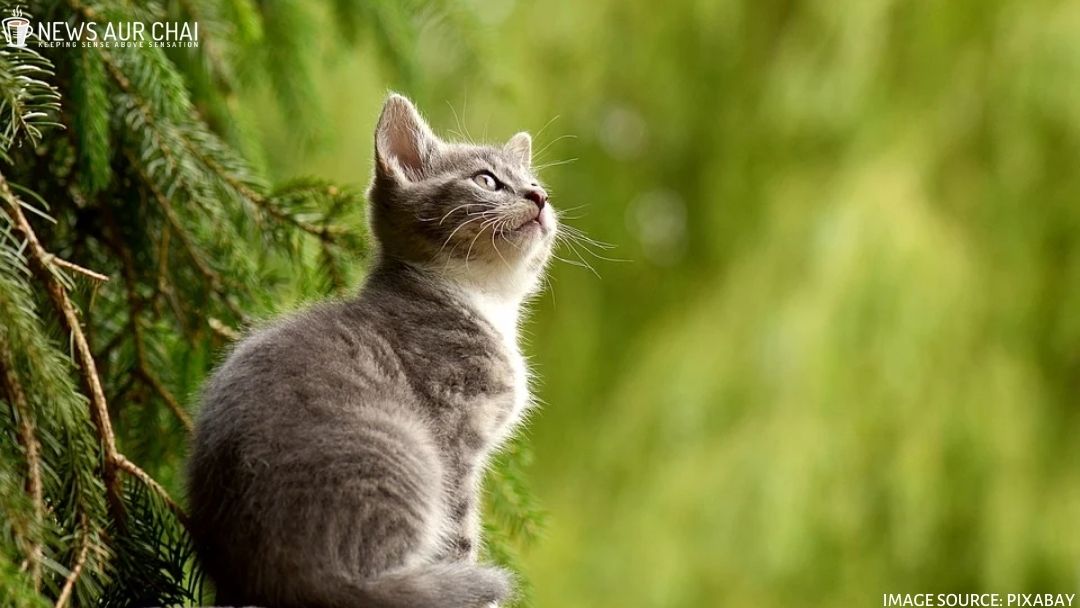
Deciding which furry friend to get home can be an intimidating job, especially for a first time adopter. Our population has been divided into two halves since time immemorial–those who prefer dogs and those that prefer cats. While the tug-of-war may continue for ages, cat lovers can rest assured that the scales are tipped in their favour.
Cats are just as loyal, playful and fun as any dog, plus they are easy to care for, have a low-maintenance lifestyle, and their adorable antics make them wonderful family members.
Here are ten reasons which can even make ardent dog lovers incline towards the feline side.
#1 Cats Tend to be Clean and Tidy:
Cats devote much of their time in constant self-grooming to regulate their body temperatures as well as to keep themselves clean. Thus they do not emit unpleasant odours even if they are not regularly bathed. Neither would they run out to roll in the mud, and even defecate in strategically placed boxes inside your house. Cleaning out litter boxes is much easier than taking long walks; your personal belongings and sofas won’t smell unsavoury; plus cats usually feel softer and cleaner when you pet them due to the constant grooming.
#2 Quiet and Reserved:
The meows and purrs that a cat makes are much quieter than other animal sounds, even when the cat is most active. A cat tends to keep it to itself and not overtly vocalize its mood like a dog. Even when your cat is trying to persuade you in handing out extra treats or is coaxing you for a cuddle, a cat’s mews are always adorable. If noise levels are a concern, a cat is undoubtedly the best choice–your neighbours won’t be complaining about your cat’s most insistent hisses which would be barely audible even from the next room.
#3 Cats Don’t Occupy Much Space:
It’s effortless to make a cat happy–just provide their essentials, such as food, water and litter boxes, and they will lead a contented life. They are not demanding, they don’t require a large room to play and exercise, or a lot of space to thrive healthily. They even take better care of their toys and keep them safely hidden in beds or baskets, away from intruders. Therefore, they make great apartment pets as they can be comfortable in having different vertical spaces instead of large square footage.
#4 Affordable and Low-Maintenance:
The initial adoption fees for cats are quite pocket-friendly for a customer. Cat food, cat toys, other cat supplies and veterinary services for a cat are generally cheap, making it affordable even for people with an unstable financial background. Interestingly, cats often prefer cardboard boxes, silicone bracelets or a ball of yarn over actual toys. Cats are probably the most self-sufficient animals who are perfectly happy lounging, napping and playing alone with their toys while you are away at work. If you have two kitties, they’ll keep each other sufficiently entertained.
#5 Cats are Indoor-Lovers:
You don’t need to have a big yard or visit parks frequently if you are a cat owner. Cats are entirely contented in limited mobility. They would rather remain perched next to a window by some fresh air, or curl up in a comfortable spot on the couch, than taking long walks outside. Neither do they require to be taken outside for defecation in the middle of the night, which is quite a relief, especially during bad weather.
#6 Cats are Natural Pest Repellants:
Though cats seem to be amused by winged creatures and creepy-crawlies, they are matters of extermination. Mice and rats will maintain their distance because of the mere presence of a cat. If somehow a rogue rodent ventures into your house, your cat’s natural predator instincts will be triggered. They also tend to keep moths, houseflies and other visiting bugs at bay. They are adept hunters with sharp debugging skills of stalking and pouncing.
#7 Understand the Need for Personal Space:
Cats, unlike dogs, don’t require your undivided attention. After a long, stressful day at work, having a dog constantly at your heels may seem quite intimidating. Cats really understand, actually appreciate the need and concept of personal space and will be perfectly happy in laying curled beside you while you finish your assignment. When a newcomer arrives at your house, a cat would prefer to be a distant observer, and would only acknowledge his presence when it is in the mood to do so. It would not go into a frenzy, seeking for approval, leaping and pawing at guests, or jump atop their laps suddenly.
#8 Cats are Easier to a Train:
A cat doesn’t need to go for walks or exercise to live a happy and healthy life. They are independent creatures. They are easy to house-train– your new kitty will usually know how to use a litter box as soon as it becomes a family member and can be left unsupervised for the day. They are also less prone to separation anxiety and can live without their human companions for a longer span of time.
#9 Provide Health Benefits:
Studies show that cats have calming effects on their adoptive families. They reduce stress and expand one’s longevity. Purring of cats have therapeutic healing capabilities on human muscles and bones, and the frequency of the vibrations have shown to pose a positive impact on joint mobility after an injury. Cats even lower your blood pressure and risk of heart attack. Exposure to cats also reduces the likelihood of developing various allergies.
#10 Cats are Excellent Companions with a Long Lifespan:
House cats have quite a long life expectancy, much to the relief of the owner. The average lifespan of a cat is about 12 years, but it’s not uncommon for cats to live as long as their early twenties or at least later teenage years. Losing a pet is truly a heartbreaking incident for an adoptive family, so cat owners can be assured that their furry companions will be around for a long length of time.
Thus, we can safely conclude that cats are just as loving and affectionate as any other pet, if not more, and can be termed as the best buddies one can adopt.





